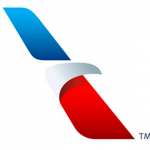Airline Share Buybacks Disrespect for the Community
Airline Share Buybacks: The US airline industry is seeking $50 billion from the Government—half in grants and half in loans—to compensate for the effects of the Covid-19 pandemic and its consequent impact on their businesses. But as Professor Tim Wu, a Columbia law professor said on March 27 in the New York Times, “the airline industry, which is prone to booms and busts, collectively spent more than $45 billion on stock buybacks over the last eight years.” He acknowledges that the economy needs help, adding, “it is hard to escape the conclusion that the $2 trillion aid package validates and indeed further rewards the questionable practices of the last decade.”
The Guardian newspaper’s data published about the airline share buybacks on March 18, 2020, shows from public filings made to the  Securities and Exchange Commission, Delta Air Lines spent $13.6bn on share buybacks and dividends between 2015 and 2019. The firm paid out a further $208m to executives between 2014 and 2018, according to data released in proxy statements sent to investors.
Securities and Exchange Commission, Delta Air Lines spent $13.6bn on share buybacks and dividends between 2015 and 2019. The firm paid out a further $208m to executives between 2014 and 2018, according to data released in proxy statements sent to investors.
 Over the same periods, American Airlines spent $12.6bn on dividends and buybacks, as well as $177m on executive pay. United spent $8.4bn on share buybacks, and paid executives $186m. Southwest has not yet released its dividend and buyback data for 2019, but spent $8.7bn between 2014 and 2018, and handed out $97m to executives in this period.
Over the same periods, American Airlines spent $12.6bn on dividends and buybacks, as well as $177m on executive pay. United spent $8.4bn on share buybacks, and paid executives $186m. Southwest has not yet released its dividend and buyback data for 2019, but spent $8.7bn between 2014 and 2018, and handed out $97m to executives in this period.
“Why do airlines deserve to be bailed out? Over the last decade they spent 96%of their free cash flow, including billions in tax savings from the Trump tax cut, to buy back shares of their own stock. This boosted executive bonuses and pleased wealthy investors but did nothing to strengthen the airlines for the long term. Meanwhile, the four biggest carriers gained so much market power they jacked up prices on popular routes and slashed services (remember legroom and free bag checks?),” writes Robert Reich, former Labor Secretary, writing in the same newspaper, on March 22, 2020.
Self Interest and Greed Should Not Be Rewarded
When Boards sanction top management behavior, such as United, Delta and American, they should be taken to task for the anti-social behavior of airline share buybacks. There are plenty of capable managers and potential board members who could replace them immediately. They have ably demonstrated their greedy and selfish ways and should be prevented from prolonging their tenures. Share buybacks have no benefit to the 300,000 or so employees of the three airlines, except for the few who hold small numbers of shares in the company’s stock.
My reading of the Delta’s, United’s and American’s Codes of Ethics suggests that they are more about compliance than aspiration and purpose. Take a look yourself and see how you react.
Delta’s Mission Statement is, “we—Delta’s employees, customers, and community partners together form a force for positive local and global change, dedicated to bettering standards of living and the environment where we and our customers live and work.” United’s Mission Statement is “to create an inclusive work environment, characterized by dignity and respect, that empowers every employee to serve the global marketplace and contribute to our success.” American’s Mission is to be, “committed to provide every citizen of the world with the best service of the air travel to the extensive selection of destination possible.”
My reaction to these Mission Statements is that they have been crafted by clever wordsmiths. I know nothing of the process by which each airline came to create their own mission statement. However, though those of Delta and United do have some sense of purpose, they nonetheless don’t sound too good against the payouts given to stockholders and top management through the airline share buybacks, simply because they received a windfall from the Government’s tax cuts, which had nothing whatsoever to do with their oversight, leadership or management.
The Airline Industry is Prone to Crises
Some are of crises are self-inflicted and of the companies’ own making, but most are not—in our uncertain world. They cannot be blamed for the pandemic, but they can be called to account for not taking account of this and other risks. They were fully aware of how the airline share buybacks would deplete cash reserves.
The airlines know all about fuel hikes, airplane crashes, political upheavals, infectious diseases, unpredictable weather, Boeing 737 Max, terrorist bombs, threats from all kinds of events, an example of which was the damage to United’s reputation when a passenger was forcibly ejected from an overbooked flight.
Rather than making big personal financial gains and artificially boosting share prices through the airline share buybacks, it would have been easy to put some of the millions in tax savings away for the ‘rainy days’ that so frequently afflict the industry. To criticize decisions made in companies where you are not on the inside is risky.
However it’s clear that members of the C-Suite (should) be capable of being careful with other people’s money. They should always assess risks and benefits for the stewardship they have over the lives of so many others in the community.
There Has to Be a Day of Reckoning
So, if the taxpayer, is now being asked to foot the bill for the lack of risk assessment by the companies, where does the responsibility lie for initiating the airline share buybacks? Fairly and squarely with top management and the Board of Directors.
Since these actors have fiduciary duties (a fiduciary duty is an obligation to act in the best interest of another party.), it seems to me that never mind the finer points of the law (in which I am not expert), the only honorable action would seem to be to resign. They failed to act in the best interests of others, when faced with a conflict with their own personal interests.
I believe that any of their stakeholders, so boldly named in their statements of mission, have every right to both feel aggrieved and concerned to take action against people who have left them jobless.
In some cases, as for example United, CEO Ed Bastian said, he and the company’s Board have cut their salaries to zero for the next six months. On the other hand, roughly 10,000 employees are taking voluntary unpaid leave. That does not sound fair to me. The employees had no part in decision making, and the financial consequences for them are proportionately much more severe.
Delta has also sent 10,000 employees on unpaid leave. American is deferring merit pay raises for top-level leadership and giving employees, including union workers, the option to take an unpaid leave of absence. Doug Parker, American’s CEO doesn’t take a base salary and is paid mostly in stock awards and bonuses. Such a person must be conflicted about his moral responsibility, given that directors are required to apply their best business judgment, to act in good faith, and to promote the best interests of the corporation. Did that happen in the case of the airline share buybacks, one wonders?
Implications for Future Moral Responsibility of Corporations
The financial implications of the pandemic for the airlines is obvious. I believe that the moral implications are much greater resulting from the airline share buybacks. It should not be possible for the management and boards of airlines, and quoted companies in general, to simply go back to ‘business as usual’ in terms of their fiduciary duties of care, loyalty and good faith.
I observe that ambition and practice at these airlines is going to have to change in future. There will be a soul-searching process for them to survive long term as businesses. Their purpose in the world is surely not the enrichment of a few. What will their PURPOSE be?
In my recent post on Profits and Purpose, I was talking about startups rather than multinationals. However in the aftermath of the Covid-19 Pandemic, there is bound to be considerable re-evaluation of corporate purpose and accountability—at all levels. This re-evaluation will not be confined to the movers and shakers of the business world. Thinking voters will expect the business world to have more care for the community of a company’s stakeholders the community.
The System Has to Change
Robert Reich, former Labor Secretary and a professor of public policy at UCLA, Berkeley wrote a book, called Saving Capitalism, which has a subtitle ‘For the Many, Not the Few’. It was published about five years ago and has important messages for right now. At the end of the book he said, “The vast majority of the nation’s citizens do have the power to alter the rules of the market to meet their needs. But to exercise that power, they must understand what is happening and where their interests lie, and they must join together.” The last two sentences of the book are, “We have done so before. If history is any guide and common sense has any sway, we will do so again.”
His new book, published on March 24, 2020, only a few days ago, is called The System: Who Rigged It, How We Fix It. How timely! In this book, Reich exposes how those at the top propagate myths about meritocracy, national competitiveness, corporate social responsibility, and the “free market” to distract most Americans from their accumulation of extraordinary wealth, and power over the system.
His objective is not to foster cynicism, but rather to demystify the system so that we might instill fundamental change and demand that democracy works for the majority once again. He said recently, in the light of the Pandemic, “Socialism for the rich means people at the top are not held accountable. Harsh capitalism for the many, means most Americans are at risk for events over which they have no control, and have no safety nets to catch them if they fall.”
I heartily encourage you to watch Robert Reich speaking on the theme of his new book.






